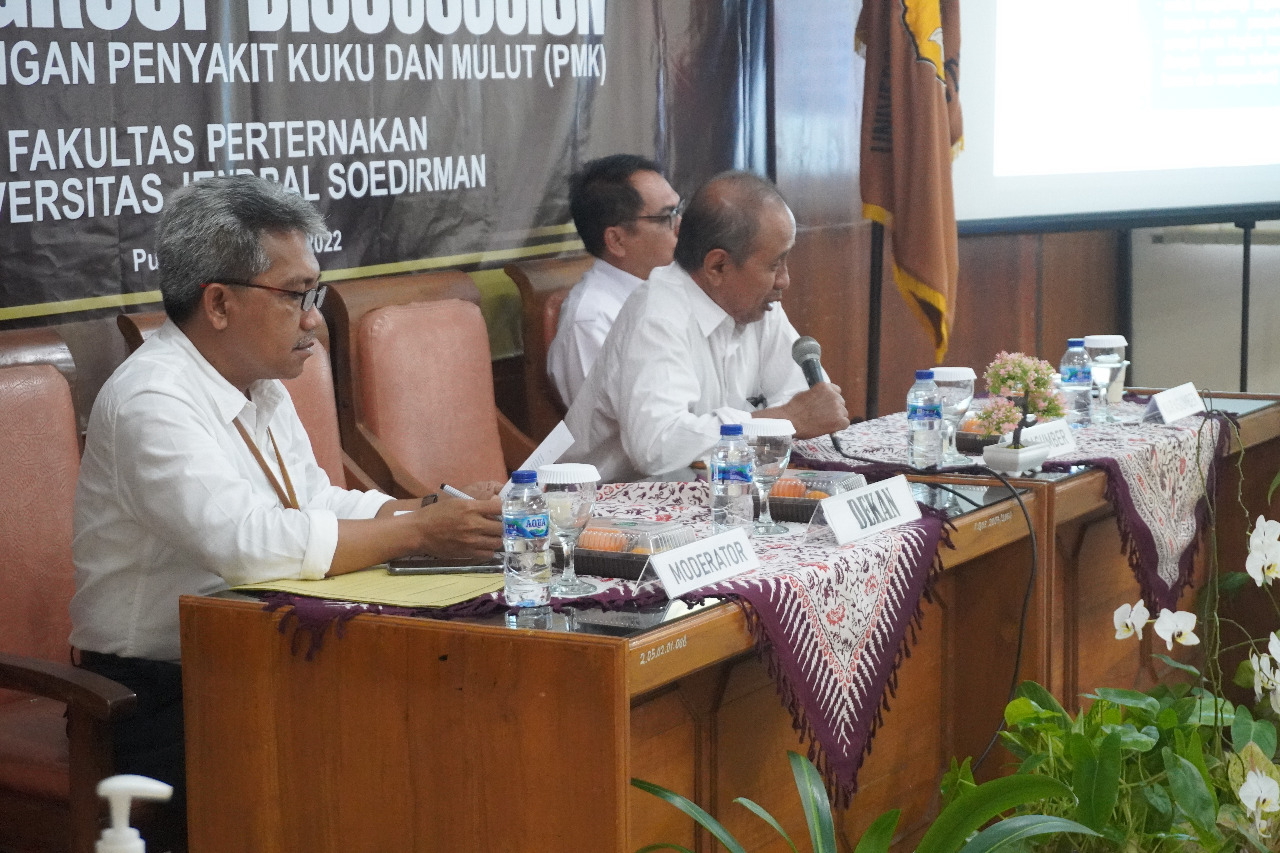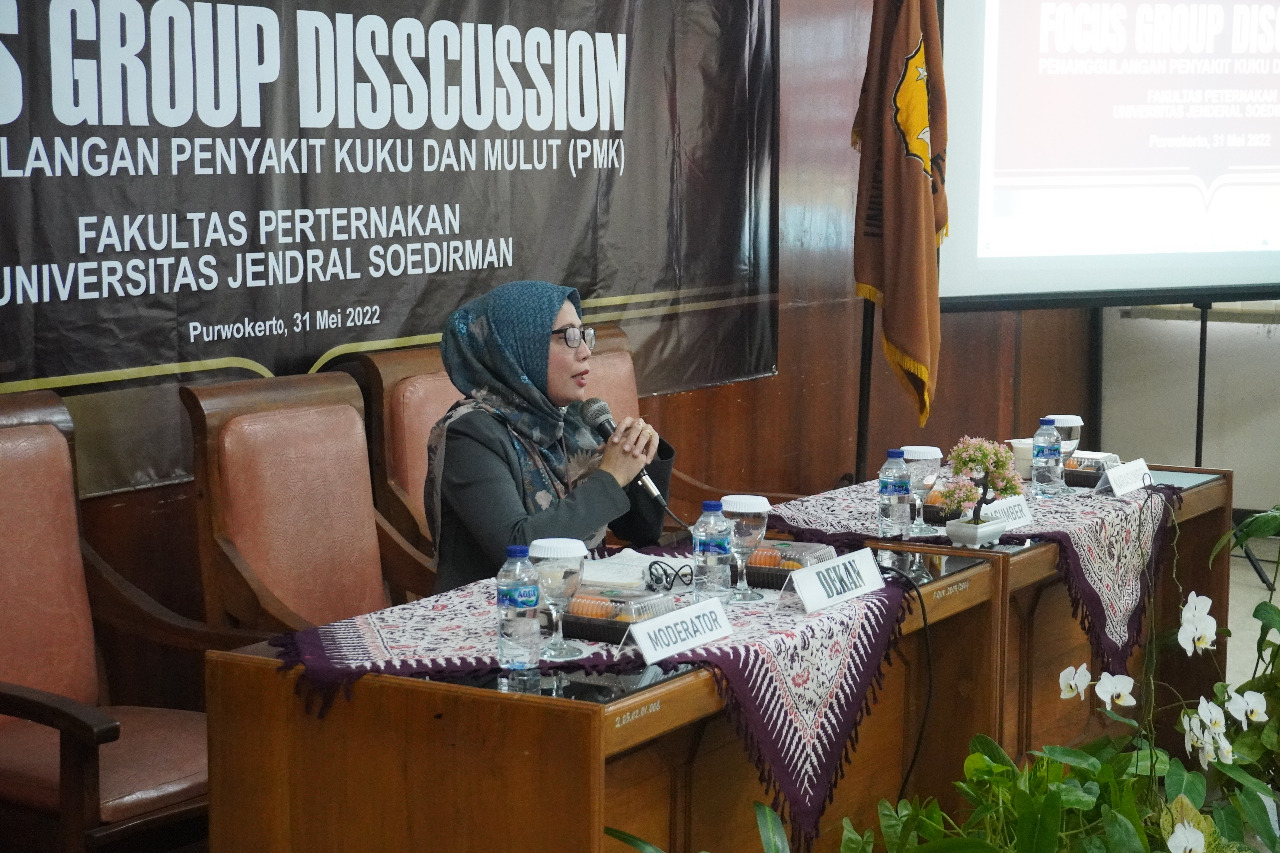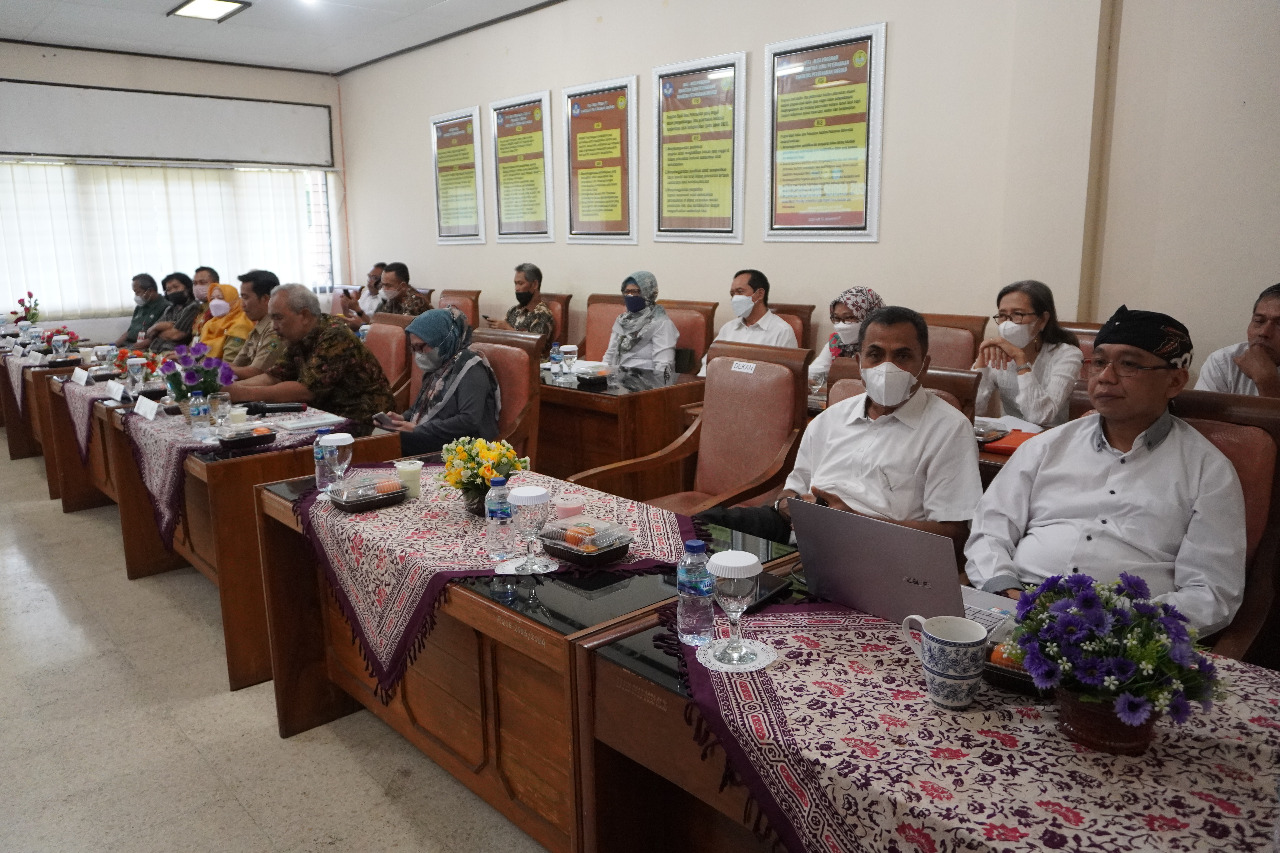FGD on Foot and Mouth Disease (FMD)
[unsoed.ac.id, Thu, 02/06/22] After the Covid-19 pandemic has begun to gradually end and be under control, Indonesia is currently faced with issues related to Foot and Mouth Disease (FMD) which is a viral outbreak in ruminant livestock. This epidemic is a highly contagious disease and attacks all hoofed/even-toed animals such as cattle, buffalo, sheep and goats.
The potential negative impact that is being felt by farmers in rural areas in particular is the increasing mortality rate and has an impact on the stagnation of livestock population growth in Indonesia. Livestock production also experienced a decrease which was followed by economic losses for farmers. On a macro level, Foot and Mouth Diseases also caused nearly 80 percent of the animal market in Central Java to close their operations. In the long term, a decrease in livestock production and population can make it more difficult to achieve food self-sufficiency and increase stunting.
Based on these challenges and problems, the Faculty of Animal Husbandry UNSOED took a strategic role by holding a Focus Group Discussion (FGD) involving district governments in the West Central Java region and the livestock industry.
The Dean of the UNSOED Faculty of Animal Husbandry, Prof. Dr. Triana Setyawardani, S.Pt., MP in her speech emphasized that problems in livestock development can be more systematically and effectively resolved through collaboration of all livestock stakeholders (academics, bureaucrats, and industry). The Faculty of Animal Husbandry UNSOED is ready to cooperate with the district government and industry in accelerating livestock and rural development.
The FGD presented Dr. Muhammad Samsi, MP and drh. Mohandas Indraji, MP, both are lecturers at the Faculty of Animal Husbandry UNSOED with expertise in animal health. In the FGD it was stated that there will be many impacts of FMD if it is not resolved quickly and in a coordinated manner. However, FMD is not a disease that can be transmitted to humans. The pattern of raising livestock must be adjusted to the demands of the cleanliness of the cage and aspects of livestock health and the environment. Livestock trade is also an important concern to control the spread of the virus. Hygiene during the livestock trade and a certificate of livestock health are important issues that must be considered to ensure the movement of livestock takes place safely and virus-free.
The FGD was attended by the Heads of the agencies/services in charge of livestock such as the Head of the Banyumas Regency Fisheries and Livestock Service, the Secretary of the Brebes Regency Livestock and Animal Health Service, the Cilacap Regency Agriculture Office Secretary, the Purbalingga Regency Agriculture Office Head, the Livestock Division Head, the Agriculture Office, Fisheries and Food Security of Banjarnegara Regency, Head of Animal Health Section, Department of Agriculture and Food Security of Kebumen Regency and Dr. Muhamad Bata (Fapet Lecturer/Owner of Amanah Farm).
The main issues raised by the industry and district governments are how to manage livestock trade/traffic during an FMD outbreak and the effectiveness of issuing Animal Health Certificates. Livestock traffic between regencies/city requires the involvement of the Provincial Government to participate in managing its policies as well as between districts themselves which communicate to ensure the distribution is safe from FMD. The involvement of universities (Faculty of Animal Husbandry) can be focused on observing and inspecting livestock, especially at locations where livestock trade is carried out.
At the end of the FGD, the Dean of the UNSOED Faculty of Animal Husbandry, Prof. Dr. Triana Setyawardani, MP, hopes that the collaboration and synergy between the Faculty of Animal Husbandry and the Regency Government and Industry will be stronger, mutually fulfilling, complementary, and mutually reinforcing. We all hope that the FMD will not interfere with the provision of healthy cattle/goats for worship on Eid al-Adha. The changes caused by PMK are opportunities and challenges to create innovations in animal health technology and models of healthy and safe housing/cattle farming systems.
#unsoedmajuterus



